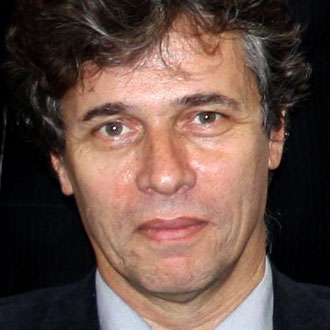Name: Dr John Spicer
Age: 59
Role: GP, and postgraduate dean of GP and community-based education
Place of work: Croydon, south London, and central London
05.30: I wake up before my alarm. At 6am I eventually rise and shave. I have found that bot these processes are getting harder and harder for me.
08.00: I have been a GP in a suburban area of south London for nearly 30 years. I make it to the surgery via the heavy London traffic and get stuck into morning surgery.
It’s always a pleasure to see patients I’ve known for years, but I keep mainly do same-day appointments. It helps with access and also helps me keep my acute medicine skills up. At the moment I work two sessions of clinical a week. I find the best driver to keeping up with CPD is the patient who comes in the front door. My appraisal is coming up in a couple of weeks, so that is on my mind.
There is often a final year student to keep an eye on through the morning. That keeps me on my toes too.
11.30: I still have buckets of paperwork to get through before the end of morning surgery. I also have an elderly patient to see at home – funnily enough, I seem to be enjoying these home visits more than I used to, these days.
13.00: Head off to Stewart House, near Russell Square, where I will spend the afternoon. Howling gale and torrential rain has come upon us this morning but somehow South West trains cope.
I have held my role as director of GP training in London for three years now, during which time medical education has gone through significant change. Most recently, during last April, the responsibilities of the old deanery passed to three local educations and training boards (LETBs), each covering a third of the old patch – Health Education North Central and East London, North West London, and South London.
14.00: Meet with our senior business manager to go through the budget, which all look healthy. The budgets will have to be passed on to the three London LETBs on 1 April this year, and need to be in good order We are expanding our intake each year, as required by the LETBs’ parent organisation Health Education England, and need to make sure we can pay our 1,300 GP trainees.
14.30: Meet an ST3 who has been struggling with a long-term illness during his studies. We work out the best way to handle his programme and rotas. I reassure him he’s going to be well supported by his local programme directors and other supervisors.
15.00: Sit down with the steering group that is overseeing our efforts to attract more students to general practice, and consequently the ways we need to add more trainers and training practices. The meeting is chaired by one of the postgraduate deans. We’ve made the target of 430 or so students to start next August, after a lot of hard work by the GP training network and the team in the GP school. I’m proud of all of them, but we’ve yet more work to do by August 2015.
16.00: Another meeting, this time of the London GP associate directors and head of school. They have the hands-on responsibility for training students, and there is much to talk about: increasing the numbers of trainers at the school, dealing with ‘iffy’ hospital posts, and troubles with out of hours training, as well as smaller issues.
18.00: I finally look at emails received this afternoon and blanch, inwardly. Then I take a call from a colleague who works with me on primary care ethics education – we are preparing to lead a conference coming up next month. I’ve been interested in clinical ethics the last 10 years and try and maintain some skills in this area. It’s thought-provoking and intellectually different to the activities of the rest of the day.
19.00: Travel to West London for a large gathering of clinicians, managers and academics to consider the reorganisation of hospitals and primary care services there. It’s going to have implications for GP trainers to think about and also it will produce new ways of working: learning to train in a multiprofessional manner, following the shift of resources to primary care, and improving population health outcomes. The changes provide an opportunity to think and plan strategically.
21.30: Get home. Delighted to find my eldest son has rolled up and cooked dinner, which we devour in front of Newsnight. He’s full of chatter about what he’s up to – it’s a great pleasure to see him again.
22.30: Too late, I try to do some guitar practice before class tomorrow – I’m going to be expected to play a tricky solo. But tiredness precludes concentration. I have a soak in the bath, and then fall into bed.
Pulse October survey
Take our July 2025 survey to potentially win £1.000 worth of tokens













